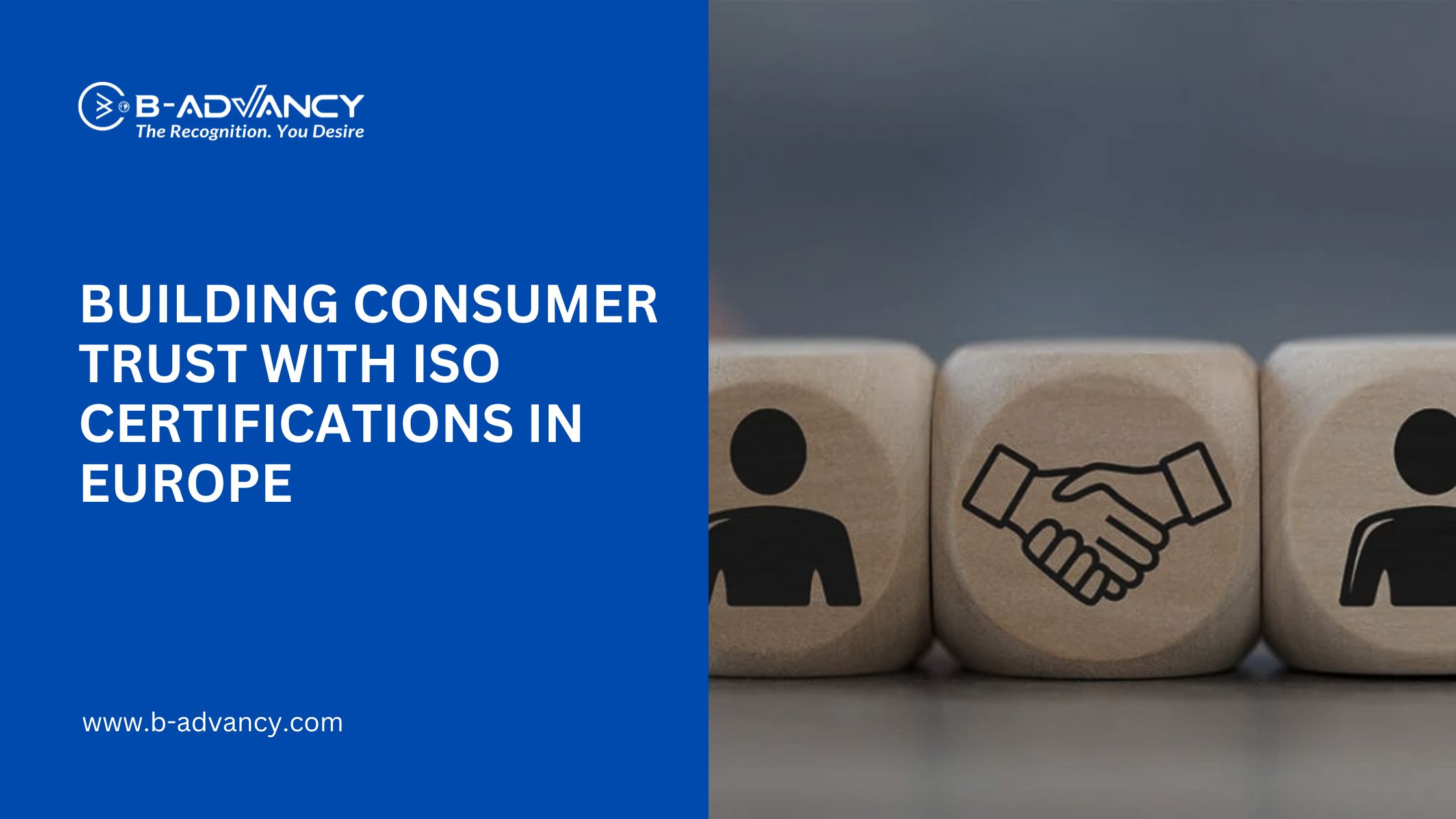
In today’s globalized economy, consumers have more choices than ever before, and their trust is a fundamental pillar for any business seeking long-term success. For companies operating in European markets, gaining consumer trust goes beyond quality; it encompasses accountability, safety, consistency, and transparency. ISO certifications play a crucial role in establishing and fostering this trust by providing a reliable framework for quality management, environmental responsibility, data privacy, and much more. Let’s explore how ISO certifications help businesses earn and maintain consumer confidence in Europe.
One of the primary reasons consumers trust ISO-certified businesses is the assurance that these companies meet globally recognized standards. ISO standards, such as ISO 9001 for Quality Management and ISO 13485 for Medical Devices, ensure that businesses consistently deliver high-quality and safe products. These certifications signal to consumers that a company has rigorous quality checks, compliance procedures, and protocols in place, making them more reliable in meeting consumer expectations.
For European consumers who value quality and safety, ISO certifications serve as a guarantee that businesses adhere to stringent requirements. This is especially important in markets where product reliability is paramount, such as healthcare, automotive, and food industries.
European consumers are increasingly concerned about environmental impact, and companies are expected to align with sustainable practices. ISO 14001 certification, focused on environmental management, demonstrates a company’s dedication to minimizing its ecological footprint. By complying with ISO 14001, businesses commit to sustainable operations, waste reduction, energy efficiency, and reduced environmental impact.
This certification builds trust among environmentally conscious consumers, assuring them that a company is taking active steps toward sustainability. Additionally, adherence to these standards improves a company’s public image and often attracts a loyal customer base that values eco-friendly initiatives.
With the rise of digital transactions and personal data exchange, data security has become a top priority for European consumers. ISO/IEC 27001 and ISO/IEC 27701 certifications, which cover information security management and privacy information management, respectively, are invaluable for businesses in safeguarding consumer data. These certifications reassure consumers that their personal information is managed with the utmost care and protected against breaches or misuse.
European countries have strict data protection regulations, such as the General Data Protection Regulation (GDPR), and ISO certifications that align with these laws build consumer confidence in data security practices. Consumers feel safer sharing personal data with ISO-certified businesses, knowing that their privacy is respected and that robust security systems are in place.
One of the greatest benefits of ISO standards is their consistency, which is crucial for multinational companies operating across various European countries. ISO certifications help businesses maintain consistent processes, products, and services regardless of location. For instance, an ISO 9001-certified company offering the same high-quality products in both France and Germany builds trust among consumers across these regions, as they know the quality will be the same regardless of where they are.
This consistency is particularly beneficial in Europe’s diverse market, where consumers may be accustomed to varying standards based on local regulations. ISO certifications provide a universal quality benchmark, giving customers the assurance that they will receive the same high-quality experience in different countries.
ISO certifications often involve processes and feedback mechanisms aimed at continuous improvement. By adopting standards such as ISO 10002 for customer satisfaction and complaints handling, businesses can better address consumer needs and manage complaints effectively. This proactive approach to consumer feedback fosters trust by showing that a business is genuinely invested in its customers’ satisfaction and is willing to make improvements based on their input.
For European consumers, this focus on customer care builds confidence in a brand, especially in highly competitive markets. ISO-certified companies typically enjoy stronger customer loyalty, as consumers feel valued and trust that their concerns will be addressed promptly.
With the increasing number of businesses competing in Europe, ISO certifications serve as a mark of excellence and differentiation. Certified businesses stand out in a crowded marketplace, as these certifications signal that a company not only meets regulatory requirements but exceeds them. European consumers often look for ISO-certified logos or references as they make purchasing decisions, trusting that these businesses are more reliable and committed to quality and ethics.
For small and medium-sized enterprises (SMEs), ISO certifications can be a valuable asset in building consumer trust and competing against larger brands. Certification demonstrates that an SME is committed to high standards and is serious about offering reliable products or services.
ISO standards encourage a mindset of continuous improvement, where businesses regularly assess and enhance their operations. ISO-certified companies regularly review and improve their practices, which reassures consumers that they are dealing with an organization that strives to adapt and improve over time. This commitment to innovation and quality resonates with European consumers who value brands that evolve with changing standards and expectations.
ISO certifications provide a robust framework for businesses to meet and exceed consumer expectations in Europe. By adhering to internationally recognized standards, companies enhance product quality, promote sustainability, secure customer data, ensure consistency, and build a culture of continuous improvement. In the end, ISO certifications not only help businesses comply with regulatory requirements but also build lasting trust and loyalty among consumers. For European companies, earning consumer trust is essential for success, and ISO certifications provide the tools to achieve it.